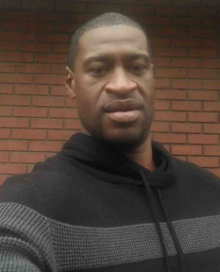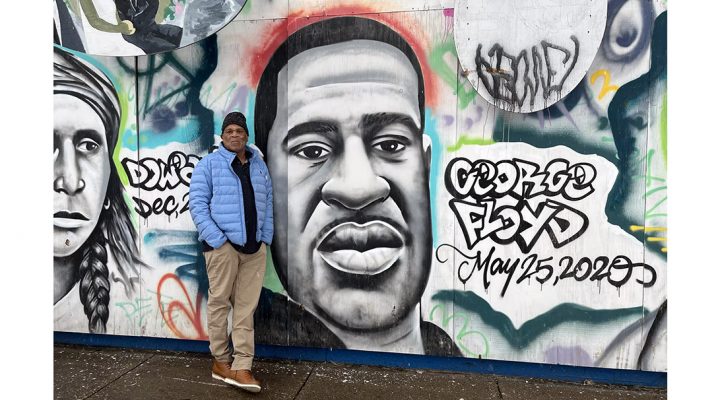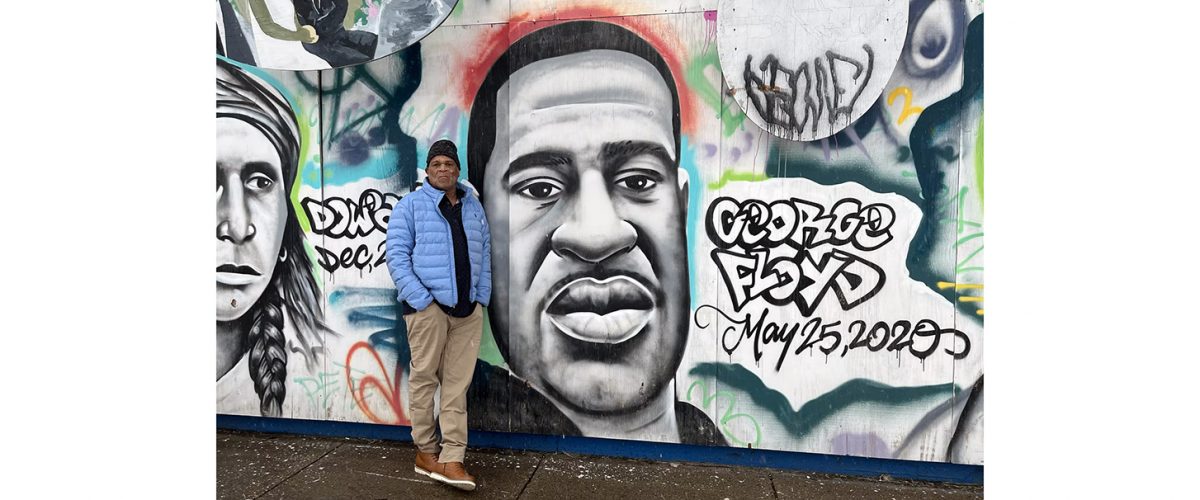On this fourth anniversary of George Floyd’s death, his uncle Selwyn Jones wants the world to know his death wasn’t in vain.
“I’m sad and blue and I am happy to have an opportunity to be that guy to bring about change in my nephew’s name,” said Jones, who seeks justice and safety for marginalized people through his foundation, Hope9:29. He’s on the speaking circuit wherever he can be heard, from civic organizations to media interviews to Harvard University and, next month, the White House.
“My nephew could have died in a car accident, he could have died in the back of a bus, an abandoned building, he could have died many ways, but the Lord gave him an opportunity to make a difference in this world and make an impact that we’ve never seen,” Jones reasons.
Like a lot of Americans, Jones remembers exactly where he was when he received the news about his nephew’s death. “I walked in the room and noticed my wife and mother-in-law in tears, and I can remember them trying to shield me from the television that day.”

George Floyd
He remembers watching all the emotions Floyd experienced that day, captured on one of the most famous pieces of video in modern American history. “I remember the day you saw my big sister’s baby boy screaming for his life and begging for his life. You see him go from laughing, dancing, begging, crying and then dying.”
Although the world knew George Floyd from the few minutes of video, Jones knew him as his nephew. “His life was cut short because someone had control issues,” he explains.
He refuses to speak the name of the police officer convicted of Floyd’s murder. Talking about that won’t bring his nephew back. “He will never be able to walk his daughter down the aisle on her wedding day or enjoy eating chocolate cake for Christmas.”
Memories like these give Jones the energy to carry on Floyd’s name so hopefully other families will not face empty seats at their tables.
When asked about Floyd’s children, and how they’re holding up after their dad’s death, Jones replies, “They’re surviving, you know. They’re like kids, kids are resilient. You keep moving forward and every day that goes by it gets a little bit easier.”
Jones also has no time for those critics who want to emphasize his nephew’s life challenges.
“A lot of people have demons, and just because you have problems doesn’t mean you can’t survive,” he says. “He was trying to survive. He moved from Houston to Minneapolis so he can get that good track on path. He graduated truck driving school. He had a security job. So, he was working his butt off to be that person he should have been.”
Jones has decided to reframe his grief and sadness into becoming an advocate. He decided that to remember Floyd’s life, he would start Hope 929.
“I created the foundation to help take care of marginalized people,” he explains. “I’ve taken that channel and grief and activism to bring about change in George Floyd’s name.”
Hope 929’s mission is to foster equity for disempowered groups while empowering communities to become more resilient and self-sustaining. Its first big project is called the Gateway Harrison. It is to offer modern, affordable housing, a community resource center, and a 50-person call center to employ residents.
“My mantra is, dream, breathe, deliver, and that’s all I’m trying to do,” Jones says.
Related articles:
What do George Floyd and Kyle Rittenhouse have to do with armed civilian combat? Evidently, quite a lot | Analysis by Mara Richards Bim
Foundations give $250,000 to George Floyd Global Memorial


